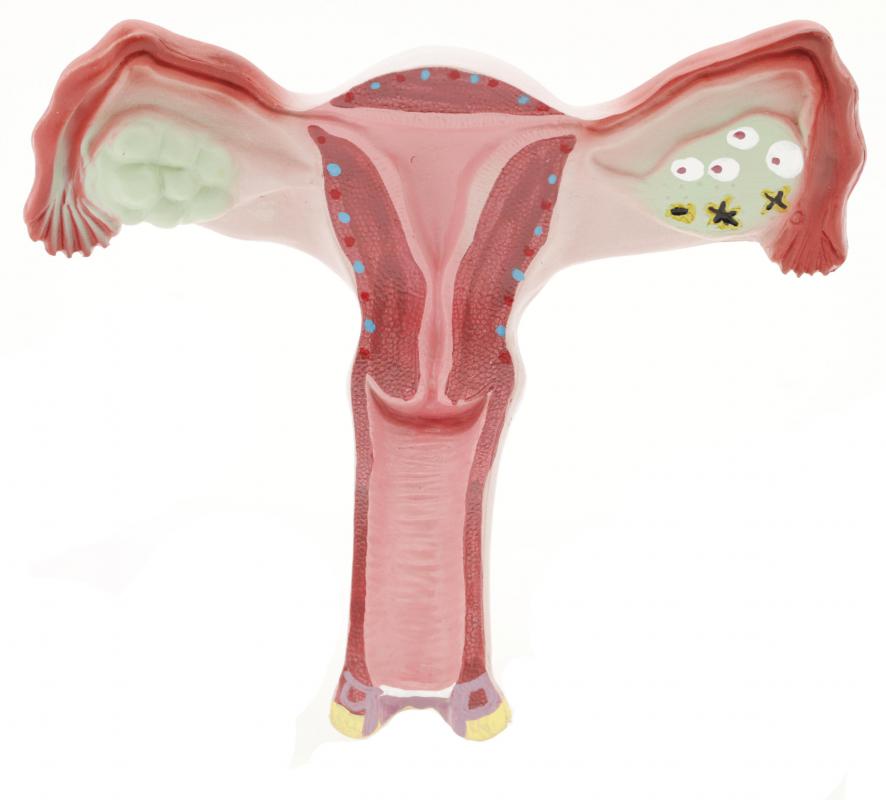At WiseGEEK, we're committed to delivering accurate, trustworthy information. Our expert-authored content is rigorously fact-checked and sourced from credible authorities. Discover how we uphold the highest standards in providing you with reliable knowledge.
What are the Most Common Causes of a Failed IVF?
A failed in vitro fertilization, or failed IVF, can be the result of poor embryo implantation, poor ovarian response, uterine infection or other problems with the uterus. It also may be caused by trauma that occurs to the embryo during the procedure. The patient's immune system also might mistake the embryo for something bad in the body, causing a failure much the same way the body might reject an organ transplant.
Poor embryo implantation is one of the most common causes for a failed IVF. This might be related to either an issue with the embryo or an issue with the woman’s uterus. An infection in the uterus is the result of bacteria, which may make it difficult for an embryo to implant. A medical professional can use an ultrasound to help make sure the embryo gets into the cavity of the uterus, but this usually does not help him see if implantation occurs.

The ovaries produce eggs and, if they are unable to produce as many as needed, this also might be the cause of a failed procedure. Many medical professionals will consider administering certain hormones that help women produce more eggs so they can be transferred. Laparoscopic surgery may be required to put the sperm and eggs directly into a woman’s fallopian tubes. This type of procedure may decrease the chances of another failure.

Trauma and bleeding can occur while a particularly difficult in vitro fertilization is being done. Many times when this happens, it is the result of cervical stenosis. When this occurs, a woman's cervix becomes very narrow or may be completely shut. This type of problem may also require laparoscopic surgery to inject the embryos in a woman’s fallopian tubes, so the cervix does not have to be involved at all.

A woman’s immune system may attack and destroy an embryo that has been placed in the uterus. This usually happens because the immune system does not recognize it as something that should be in the body. Blood tests may identify the particular cells or antibodies that might be the causes of a failed IVF.
Some women have a much higher success rate with a second in vitro fertilization if their heathcare provider understands the causes of the first failure. Most, if not all, obstetricians/gynecologists can treat their patients for infertility. Some doctors, however, focus their entire practice on treating these issues and are more prepared to tackle particularly problematic cases. Finding the right medical professional for the situation may help to prevent future IVF failures.
AS FEATURED ON:
AS FEATURED ON:














Discussion Comments
Julia Indichova offers wonderful support from her books for those trying to conceive and start families through a variety of methods.
@starrynight - Yeah, I think I remember reading somewhere that only fifty or sixty percent of people who try IVF actually get pregnant. Even with those IVF rates, I can see why people still try it though. After all, a fifty percent chance is better than no chance at all!
That being said, I don't know if I personally would want to put myself through IVF. And especially not more than one time. I think if I were facing infertility, I might consider adoption before IVF.
It's crazy that IVF pregnancy can fail because of trauma to the uterus during the actual procedure. And then if the uterus isn't traumatized, sometimes IVF fails because of the body's own immune system. It seems like getting pregnant through IVF is a pretty slim possibility!
@strawCake - In vitro fertilization doesn't always work, it's true. And from what I hear, it's fairly expensive, so it's unfortunate that some people have to go through (and pay for) another round after failed IVF.
One thing doctors do to increase the possibility of the woman getting pregnant is put more than one embryo in the uterus. However, I've heard of this backfiring when all of the embryos implant, and the woman ends up with 5 or 6 babies all in one shot!
I know in vitro fertilization has a fairly high failure rate. A friend of mine was trying to get pregnant, and she went through several IVF transfers before it actually stuck. As the article said, a lot of people are more successful after the first try.
Post your comments